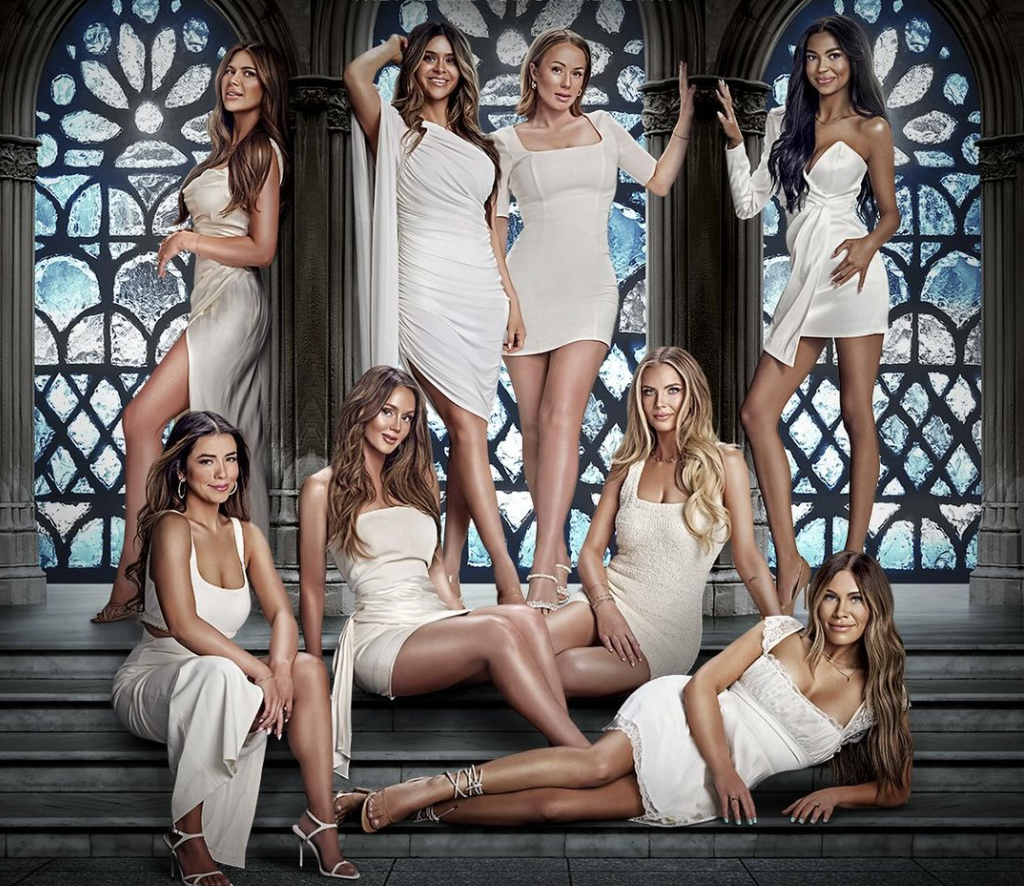
From “soft” swinging to soft drinks (the obsession with Diet Coke runs deep), the new Hulu reality show, “The Secret Lives of Mormon Wives,” gives an enticing look into the messy, drama-filled lives of a group of women in their 20s attempting to challenge the constraints of the Mormon religion.
The show focuses on Taylor Frankie Paul, the alleged leader of #MomTok, the chosen name of a group of Mormon women influencers, as well as Whitney Leavitt, Jennifer Affleck, Mayci Neeley, Jessi Ngatikaura, Mikayla Matthews, Layla Taylor and Demi Engemann. Paul was the first to blow up on TikTok, posting relatable content for mothers and Mormons alike — that is, until she faced a major scandal in May 2022 following her divorce.
The split was due to “swinging,” or the swapping of sexual partners, between several Mormon couples in their community, resulting in an understandably confusing emotional entanglement for all parties involved. As a result, the livelihoods of several women who had associated themselves with Paul and the #MomTok community were at risk. They began to lose sponsorships as they faced criticism and speculation about swinging, ending up with a stream of negative attention to their platforms. The show begins with the aftermath of the scandal and how the moms plan to reinvent #MomTok and everything it stands for.
The drama between the women, which is what the show centers on, is some of the most enjoyable reality television I’ve seen in years, constantly teetering on the line between insanity and hilarity. For those who enjoy watching the dramatic dynamics of a friend group (“Real Housewives” fans, I’m talking to you), “Secret Lives” would definitely be an enjoyable binge.
Throughout the show, watching the women slowly realize the victimizing, selfish nature of Leavitt is both satisfying and hysterical. My favorite moment was when they simultaneously unfollowed her on Instagram at the launch party for Mayci Neeley, a TikTok personality, the most significant show of distaste in the influencer world.
The dynamic between the women seems to follow a format similar to a high school clique, where they are constantly talking behind each other’s backs but appear to be best friends to their faces. Consequently, when these fake fronts come to the surface, the women have theatrical fights filled with screaming, name-calling and crying. They always seemingly need a leader to be the face of their group, and when Paul falls out of this role, whether out of drama or carelessness, chaos ensues. Nevertheless, once Leavitt leaves the group, the women appear to form a genuine friendship with each other and are always there to support one another. Whether this support is because of optics or authentic care is left for the viewer to decide.
One aspect of the series that’s contentious among women and audiences is the interpretation of religion, specifically the Church of Jesus Christ of Latter-day Saints.
Referring to the women as “Mormon” wives in the show’s title can be slightly misleading for those who want to learn more about the religion. The women in the show cite the purpose of their group as a means to dismantle the oppressive standards and constraints of the religion, but how exactly they do this is up for debate among the women.
Affleck, influencer and devout Mormon, criticizes Ngatikaura, a hairstylist no longer active in the church, for embracing drinking, yet gives her husband money to gamble after he loses college tuition money. Likewise, the women claim to be changing the perspective of the church by being open and welcoming to every Mormon woman, yet shame Affleck for being “too Mormon.” There is a growing gap between the values that these women claim to represent and the reality of the church.
However, I do admire how the women advocate for Affleck when her husband projects his sexist views and expectations onto her, like when he chastises her for being surprised by strippers on a trip to Las Vegas, Nev., with all of the women and threatens divorce when she simply wants to enjoy time with her friends. The way they come together for her proves they do agree on at least one thing: The perpetuation of patriarchal ideologies negatively impacts women’s freedom in their relationships.
In the last episode of the show, we are left on a major cliffhanger about Dakota Mortensen and Paul’s relationship following the birth of their baby. For the entire season, Mortensen claims he did not sleep with Jenna, his ex-girlfriend, during his relationship with Paul. However, the cameras capture Neeley on the phone with Jenna finally finding out the truth. This leaves no doubt that Mortensen has been lying this entire time; his controlling and verbally abusive tendencies toward Taylor are only a reflection of his own guilt.
It is irresistible to anticipate the next season of the show and see exactly how this situation plays out for Paul, Mortensen, Neeley and the rest of the women. However, as of now, the show leaves me with one final question: How will #MomTok survive this?



















